We first noticed her in Karan Gour’s remarkable little psychological drama, Kshay. The B&W indie garnered a lot of praise back in 2012, but it was its lead actress, RASIKA DUGAL — who plays a young financially-challenged middle-class housewife that gets obsessed with an expensive Goddess Lakshmi idol — who stole the show with a complex rendition. She then appeared in another psychological film, a very well-made Punjabi period tale called ‘Qissa’ by Anup Singh, alongside Irrfan Khan, Tillotama Shome (lead) and Tisca Chopra. As the innocent gypsy girl who discovers that her “husband” is actually a girl brought up as a son, she shone in an ensemble that made waves across film festivals. But Dugal, the artist, has been around far longer, and she will be around for a while.
CHINTAN BHATT sits down with her and talks to her about her career, FTII years, the craft of acting, Kshay and much more.
You are from Jamshedpur and later went to Delhi to study further…
RD: I was born and brought up in Jamshedpur. I have lived in the same house all my life. Jamshedpur is a nice little town. I’m sure you’ve come across a lot of people from there.
Come to think of it, yes, half the industry.
Yes, we are all hanging around in Mumbai. (laughs) I had the most uneventful, satisfactory childhood that anybody could ever imagine. It was very laid back, and a lot of fun. No great stories from there, except that it was a happy one. Schools in Jamshedpur are pretty good, but there are no colleges. Everybody moves out to study in either Delhi or Bombay. When I went to college, it was all about cut-offs and who makes it; the ones with better percentage go to Delhi, and all the lower ones to Bombay. I went to LSR (Lady Shri Ram College) in Delhi. Until then, my experience of being on stage was limited to skits and not actual plays. Mostly, I got cast as Mother Mary in Christmas plays because I was fair and had long hair. (laughs) That’s what they do to you as children, right?
I had grown up studying at a convent school, where there were many Don’t’s and few Dos; nobody in my family has anything to do with arts. My father and uncles run a business, but I was always fascinated with the stage. I was one of those kids who was always in an elocution contest, debate and stage plays, but I had never really learnt anything properly. I had never gone to a guru to learn music or dance, and I wasn’t even familiar with how these things were done. Everything was at a superficial level: Oh there is a dance show, we will practice for one month and have lots of fun, we will do this show and come back. So when I went to LSR, I was a bit stunned — anybody from LSR who did theatre or dance had been doing it for years with serious well-known professionals in the field. Somebody was trained dancer under KV Charan Mahapatra, somebody was part of Leela Samson’s troupe. That was quite an eye opener. But that’s when I got my first experience on stage, real stage, when I acted in a play directed by this very wonderful theatre person called Anamika Haksar; she’s still doing some very good work. LSR exposed me to a lot of stuff and I also met people who really knew so much more than me. And that was in one sense very humbling, because in Jamshedpur I was considered the best in many things. In Delhi, I realised I am nowhere close to understanding that level. I was studying Maths, so I was very short on time, but I would squeeze out whatever I could. I’d cut my holidays into half to work with NGOs, go watch plays and things like that. I was so unaware about music, about dance, and everybody around me seemed to know it and it was part of their lives. I tried to learn as much as I could at that time.
So the decision to go to FTII was a manifestation of all these experiences and was it more of a spontaneous decision?
It was actually very much on a whim. At that time in my life I was used to, and also had the courage to do whatever I felt like doing without really thinking it through. I guess acting is one of those decisions. If I had thought it through, I might not have done it, considering it is so unstable and full of ups and downs. But I was in a phase in my life where I was willing to try out anything that seemed interesting. For me, unlike what you hear from other actors, it was not something I had been wanting or dreaming to do forever. I think I was very fascinated by the idea of FTII. Because I had met a couple of people from there. I was like: Oh, this is film school, and people only breathe films and talk about films and the campus is so fertile — and I was excited about that. And after LSR, I had studied for a year at Sophia College in Bombay, a social communication media course: a very interesting course, and my initiation into films because it had an entire paper in film. The HOD back then, Jeroo Mulla, was the film teacher as well, so automatically cinema became an important aspect of the course. I didn’t think of pursuing acting as such, as nobody does that after Sophia; everybody does media jobs. Somebody wrote to me about a research project which two academicians were doing in U.P. and I thought it sounded pretty intriguing. I went to Lucknow to help them out for 6 months. It was a point at which I was carefree, and ready to do anything and had the courage to see it through. Nowadays if somebody asks me, I will have 25 questions like “Where are we staying? For how long? What are we doing?”
And when I was almost getting done with that Lucknow stint, somebody wrote to me about this project in Bombay for this research organisation called Pukaar: Partners of Urban Knowledge, Action And Research. They were looking for a research assistant for a project on Gender in Public Space. So I thought, why not? I came back to Bombay. And while I was at Pukaar, I realised that I had assisted academicians for a year, and I had no background in social sciences! I was a Maths student. So beyond just getting work done and getting material for them, I couldn’t get further involved because I didn’t have any further understanding of the subject academically. But I sort of had my fun with the project: I used women’s behavior in public places — like how much they access a particular place, so I would stand at different food stalls and stations throughout the Western Line to observe. And they actually came out with a book called WHY LOITER, which was based on our findings from the project. When I was in that “bored phase” of my job, I read somewhere that FTII was restarting their acting course. It had been shut for 26 years, so I thought, Chalo let’s try. I excused myself from work, I applied and got through. I think they wanted a mixed class, a group which had a lot of experience and a group which had no experience. I was the no-experience category. By the time I went to FTII, I had not acted at all in 2-2.5 at least, and people in my class were from Shree Ram Centre, Naya Theatre and all these places, really hardcore and had lived and breathed theatre. They were on the ball with things, they knew how to improvise, and I had no idea. I had just worked with academicians for 2 years and all they did was talk talk talk. They knew songs, they knew how to play instruments. But I think within 6 months, I knew that this was going to be something I will be doing for a long time. I didn’t know for how long, but that I had a sense of, because I had never felt so interested and involved in something.
What do you think that is? That feeling or comfort where you feel you belong there?
It is not a comfort, it is actually a discomfort. You realize that there is a lot that becomes clearer as you find out about things. So the more you know, the less you feel you know, and that keeps you interested in it. And I hadn’t felt that in any of the other work I had done. Maybe it was my lack of understanding of those fields, maybe because I am from an academic background, so I would feel that, “Yeh toh ho gaya, ab kya?” But with performance art, I didn’t feel that. As soon as you became clear about one thing, there were many other things which became unclear, and that’s what kept me interested at every stage. I felt very happy being in a space which had a history; I felt that I was just not studying acting, but I was a part of something, which had been Prabhat Studios sometime, and which had some place in history. The idea that you walk out of your room and somebody might be shooting something, and somebody is waking you up in the middle of the night saying, “Listen we don’t have enough help. Can you just come and hold this thermocol for the DOP? When I came out of FTII, I had forgotten what 6 to 9pm looked like, because we were always in a dark hall watching a film.Those films really kept me interested in what I was doing.
Is that what a good actor is? Do you think it’s these varied life experiences besides the actual physicality that gives an actor the quality to connect?
I don’t know. I think anybody could be a good actor. I recently shot with a kid and I kept thinking — I hope he doesn’t learn the wrong things. Because when you are so raw, and if you are just comfortable in an environment with an understanding of what people around you want from you, it is that simple. Lot of actors tend to do that — wherein their need to work on something, just to assuage a guilt of preparation, they end up doing things which are counterproductive to the final outcome. I don’t know if there is a precise quality I could see in somebody and feel that, oh hey, this could make them a good actor. No, anybody who has an orientation towards it can be good at it, especially if they find directors who put them in spaces where they can extract a performance out of them.
Before Kshay, you did quite a smaller roles in some films. Tell me about that journey after FTII, auditioning and looking for work?
It felt very long, yaar. (laughs) It still feels very long. Every time you have to wait between projects, it feels like forever. I did several tiny roles. In fact I think if you had to count all the roles I did, Kshay would have been my 11th or 12th film. I don’t think there was any time in Bombay when I was sitting at home. Throughout my 8 years in Bombay, I have always been strapped for time. I don’t have enough time to watch films, to read like I used to in FTII, because all the time I have just been doing the work that I had, or looking for work. Auditions are part of my bloodstream right now. And I feel it is a fair process for anybody to judge your work, and it’s good for me also to get to know a little bit about the people I might be working with. If anybody calls me for an audition I am always up for it. In fact, one should audition for all parts — and they should also see you in that role, or at least know where you are with the understanding of that character, so that they know what further instructions to give you from there. Auditions are healthy, but extremely tiring when they are done badly, when the person auditioning you does not know what the director actually wants. Or if the director or person auditioning you wants everything to be done that day. Then that’s too much pressure; you are just executing, wanting to impress, you are not exploring anything else.
I did a lot of auditions and I continue to do a lot of it and that’s what gotten me those smaller parts, which then got me connected to a lot of people who then put me in touch with people, which eventually led me to bigger work than that. It’s a cycle of connections. Many people told me at that time not to do these tiny parts because then nobody will offer me a good role later. I don’t know how my life would have turned out if I hadn’t done these roles, but that was the only way I knew to stay connected with my work and other people. I find it very easy to connect with somebody I work with; I find it hard otherwise to genuinely connect with somebody I just met at a party, maybe after a couple of drinks. I love being friends with people I work with.
Kshay today has gathered all this praise and has become a benchmark of sorts for indie filmmakers. But how was it actually going through the shoot?
When we were making it, we were cracking jokes about the film, and about how it will turn out. Kshay, because of its no-budget situation, was a hard shooting process in terms of logistics — like shooting in one ganda depressing flat for one month. There was no such thing as Art Direction to that flat. So all of us would enter and we would fall asleep, which used to be weird. That house had some weird energy, plus we were also inducing it with all of this. And there was a steel-coating factory next to it; if I would sneeze, there would be soot on tissue paper. Plus there was no toilet, so we had to go to a mall to pee. I don’t think I had water throughout Kshay, because what if I had to pee and had to hold up an entire sequence? It was insane; I don’t know how we did it, I would never do it again. On a good day, there would be 5 of us, otherwise there’d be 3 or 4 of us. Me, Karan Gour (the director) & Abhinay Khoparzi (DOP), and Alekh Sangal (co-actor) whenever he had sequences. On a very good day, one more person would turn up to help us. It was shot over such a long time that I didn’t really understand whether it was doing anything or not.
I am usually vary of romanticizing an actor’s work. I don’t like to believe that you get so much into a character that you cannot come out. Though I have to say that when I look back at whatever little work I have done, I do remember feeling differently at times when I was working in a very involved way. But I don’t want to romanticize it, as I feel it is detrimental to my work. I don’t really notice it, and I think I want to keep it like that because I don’t want to be looking at myself from the outside so often. I already feel that’s beginning to happen with my work, not how it affects me later, but how I feel like I am watching myself from the outside. Earlier it was seamless, I wouldn’t think of doing that. There are advantages to having more experience, but these are the disadvantages. I have seen things I have done earlier that have worked, and sometimes I tend to follow those blindly rather than follow my instincts. I don’t like that. And sometimes that does serve me well — having that experience, I know what works, so I think – why not try it here too. Pure instinct is not always possible, and especially when you are older, it’s too crowded with too many things. It’s good to have those experiences — a fall-back mode of sorts — on a day when all those raw instincts are not working. But can it create the same magic that rawness can? I am not so sure. I am still figuring it out.
I was going to ask you about this romanticizing that you mention.
Like when people say, “woh character se bahar nahin aa rahe”, I hate to hear it. I cringe because I feel that it’s a job at the end of the day. The only difference is that you have to invest yourself emotionally in this. If I too couldn’t come out of character, I don’t think I would have noticed it. And I cannot be sure that the reason I was behaving that way was because of what I was doing. I don’t think you can say it with so much assurance. But the reason I say I can’t be sure: I was watching interviews of all the actors of Qissa when we were shooting, and I was watching Tillotama’s (Shome) interview, and even Tisca’s (Chopra) and mine. I still interact with them, they are friends of mine, but the way we were talking then was very much in character.
But for a role like yours in Kshay, do you ever bring anything personal to the table specially given how dark the material was?
Everything you do as an actor is terribly personal, there is no option. That is what you do, what you are supposed to do. Even if you build something very physically as an actor — say somebody says this is a physical gesture — eventually it becomes something you connect with it in a personal way. And that connection is not so logical. It’s not like you think that: oh, this happened in my life and this is how the film shows it and maybe I can do what I did back then — it doesn’t work like that. But you sort of start doing that gesture, start changing it, and it becomes something else. It assumes its own interpretation. And dark is not difficult; all of us are extremely dark, whether we like to show it or not, or pretend to be otherwise.
Dark is the easiest; it’s happy which is difficult — because to find happiness genuinely is very difficult, especially when you are living in a big city, always struggling for work and everybody is nice to you only on the surface. Darkness is natural. We all are wanting to kill each other, be mean and nasty to each other. What becomes difficult in a role that is lengthier like the one in Kshay, is how a character changes. Being very dark or very happy and jumpy like Neeli (Qissa) is not that difficult, but change which is believable — that is the interesting part. And that’s why I don’t like to do smaller parts. This is my area of interest, how this person goes from one point to another. It’s mostly a director’s job, honestly, but I like to see that happen, and see myself execute it, and also understand it better for a time when I don’t have a good director. Otherwise I am very happy to let them do their work and not interfere.
What was your first instinct when you read the script of Qisaa? Especially the latter half when Irrfan’s character comes back?
I had been familiar with the kind of work Anup does, so I wasn’t surprised. But on paper it was very confusing. But I knew that this is something the director visualises. He had taken workshops at FTII and I knew he was Mani Kaul’s assistant. I knew while reading it that I wouldn’t totally understand it on paper. I don’t think it was meant to be understood then. And I didn’t want to question him on that at all, also because I didn’t have to perform in those scenes. But the only thing I had to know was who is it that I see when he (Irrfan, the ghost) comes back, because that’s what Neeli knows. I didn’t need to ask him, because he had put some clues here and there to help me figure my way around. And those scenes were my best shooting experiences so far. I have never experienced something purely magical as I did in those scenes.
Unfortunately, I felt that it didn’t translate (onto screen) that much because my memory of that magic was so much that, when I saw it, I was little disappointed. It wasn’t what I had felt back then. And Irrfan shared that sentiment with me too. But that is just because we experienced something, right? Anup must have shot so many things after that, but I don’t have as much work as him, so that experience was very valuable to me. And it’s very rare that you go into a scene where what you feel is something nobody sitting in a room can write. The madness of it, magic of it, kuch ajeeb sa ho gaya. That happens in life when you interact with somebody and something strange happens — you know it’s either attraction or sheer disgust or it’s both mixed together, where you are attracted to somebody whom you really loathe, and you don’t understand those emotions. And unfortunately when we try to put these ‘feelings’ on paper, they get lost in translation, either from a thought to paper, or writer to director, or director to actor. If somebody writes it like that, it cannot turn out like that. Somebody has to leave you there for this to happen and it’s very rare.
What do you think about chemistry between actors. Is it the actors, script or your relationship with the actor performing with you?
Having a good co-actor is great, but even if I don’t have one I don’t mind (laughs).
This often shows. That you are able to do it even if it is not coming from the other end.
In fact, I like to do that. Sometimes, I get my joys by being in a bad film. I did a really bad film which I will not name.
Please do!
If you go on my IMDB page, you can see it.
I have seen the list, which one are you talking about?
I am not going to say it’s a bad film. You can say that, I can’t. (smiles) But I enjoyed working on it in a strange way. I said: Chalo theek hai, this is what the director has told me to do, let me find things in between, work backwards and figure out something which works for me. So I get pleasure out of doing that too. But slowly, I am losing my patience. I am becoming more irritable with irritating actors, with setups that are not conducive to working. But I think up until last year, I was pretty open to doing that. But when I was doing Qissa, I was watching a scene which Irrfan and Tisca were doing, and I thought to myself: in this film if you do something bad, it will look really bad because people around you are so accomplished. I think you can save yourself from looking bad if you are experienced enough, but you can only look good if your director makes you look good.
Do you like to rehearse a lot or leave spontaneity for at least some of it for the shoot?
I like to rehearse. I’d rather err on the side of rehearsing than on the side of no rehearsing. But it depends really on the director and what they want. Some do a little rehearsal and then they feel you are fine to go. Some say we will just see you then. And that’s what happens because of time restrictions and many other factors. I wish we do more (rehearsals) because that really gives me an opportunity to mess up. I am afraid of messing up on camera like any other actor. It’s better to get it out of the way off camera. Also, so that we are not thinking of just being safe when we shoot, because I mess up when I’ve found something good. And you don’t find anything good when you try different things. If the director is intelligent and knows his stuff, and can get a very good performance even without a rehearsal, fair enough. But not everybody functions the same way.
There is often so much chaos on a set and when you are doing a film like Qissa where the plot and character are so complicated, is there a process or way to cut off from the chaos, or does it become instinctive over a period of time?
You know what I find most helpful, what I really enjoy about a film set is that you have to do your work in the middle of this chaos. Everything around you is making sure you don’t do your best, and I went through several stages with that. Earlier I used to be so unsure of myself that even if it was irritating me I couldn’t say anything. Then I became little irritable with everything around me, so I would be like, “Bhaiya, don’t stand here. Don’t walk around. Don’t sit down.” And then I finally reached a stage where I went: fine, I am going to listen to my music. But what I found most useful is to incorporate all these things. It is to know where you are and know that you are going to work with it. So if there is a sound, it will be a part of what you are thinking, and if there is a prop, you will be using it in your own way. I think that works best, where you don’t see anything as a distraction. Just be there and feel like this is a part of it, because if I go somewhere to escape it, then to come back to that chaos is even more distracting. There are still things that irritate, like the makeup check before a shot is most irritating. I love shooting without makeup, so that nobody is dabbing your face with a stinky puff right before the shot.
I do theatre work too, and I feel that everything is supporting you to be there. Everybody in the audience is quiet, most of the times their mobiles are switched off, there is a spot for you on the stage and you are feeling it, and theatre actors are so disciplined. So in films, I really feel that every shot is a miracle, it is the coming together of so many energies so disconnected; everybody is on a different plane. Somebody is putting a light up as part of his job; he is not thinking of some artistic angle and he is not going to get as much credit out of it as I will, and he gets his salary and simply goes home. For me, there is an added thing if I get paid at all. Between ‘action’ and ‘cut’ there are 150 people holding their breath and suddenly all the focus is on you, and I enjoy that.
What are the qualities of a director that you think help you with your work?
When they don’t over-explain. Or they find a way to connect with you beyond that. I have worked with directors who are not so concerned about performances either, but they are stylistically and visually very sharp, and I totally respect that. It’s unnerving because he is not telling you anything, you are just standing there and he is like: Ya done, Okay next. And you are like, did you like my shot? You know how we are. Actors are always craving for validation, and I am also like that (laughs). We are so hungry for feedback and approval that it is very odd to see no reactions. The worst situation to be in is when the director is unsure, if they just don’t know what they want. It’s different if they want to work with you when they want to figure something out. But those who can’t decide or who don’t have a vision to their project, that makes me nervous.
You have not done many commercial films, is it the lack of offers or you not liking what is being offered?
Nobody is offering me commercial films. I would love to do them. They don’t think I am ‘saleable’, that’s the feedback I normally get. I haven’t even been close to being offered a big lead part in a commercial film, but I have been close to a character part, but even those haven’t materialized. Yet. I get a lot of calls for a lot of indie films. Sometimes, because there is very little money, I am not able to do it because even I need to earn a bit. So I have to balance it out. If I do a project which has given me less money in a year once already, then I don’t want to be doing that again. Though it’s always hard to say no when you have been offered something. You are always wondering if you have made the right choice or not. But like I said, for character roles in commercial films, I have auditioned for some, almost reached the meeting stage with others. But for some reason or the other, it hasn’t worked out.
Do you think the situation is improving for good actors in commercial films or still stagnant?
I think it is. People are genuinely looking for good performances and good actors, but it is still not the biggest thing that they want from the person. If there are two actors who are good, they probably won’t look at the better actor out of them. They’d probably go for the good actor who is also saleable versus the better actor who is not saleable. And maybe I don’t know what works against me when it hasn’t worked out, because very often nobody even tells me anything. People find it difficult to tell an actor what exactly went on in the room when they were rejected. I don’t mind knowing the truth. If somebody comes and tells me, Listen they thought your nose was ugly — I will be okay with it. In fact, I will be happier that they found my nose ugly: okay fine, now what can I do about that? Nothing? Fine. It’s beyond my control anyway, versus, “Shit, should I have done that extra take? Should I have worn something else for the audition? Should I have approached the scene differently?” All those “should I have” keep happening when you are rejected.
I think there are a healthy bunch of good actors and some of them are even saleable. I am not considering movies like Masaan to be commercial here; what I am calling commercial is Bajirao Mastani and Ram Leela and all those big-budget films. It’s a matter of chance, there are 10-15 actors who can do that one role so it depends on who wants who and who fits that part. I have left my life to chance and I am willing to bear the brunt of it. But yes, rejection is very very hard to deal with, especially if it’s at a final stage because you have already invested little bit of yourself in it, you have already done 2 auditions, done a look test, thought about what this role might do for you, probably won an Oscar in your head for it. It’s heartbreaking. I won’t say I am used to it, I don’t want to be. I have my ups and downs. That’s a life of an actor, you have to live with that.
What are you working on next?
I am right now doing this film called ‘Once Again’, and it’s an Indo-German co-production, again. It’s got Shefali Shah, Prakash Raj, me and some other actors (not sure who), starting next month. It’s nice and a little different. I am worried about how that will turn out, but I like the people who are in it. I am excited about that. We are starting rehearsals for that now. There is one more project which, because of a clash with this project, might not happen. That always happens, right? Sometimes you have no work and sometimes you have all of it.

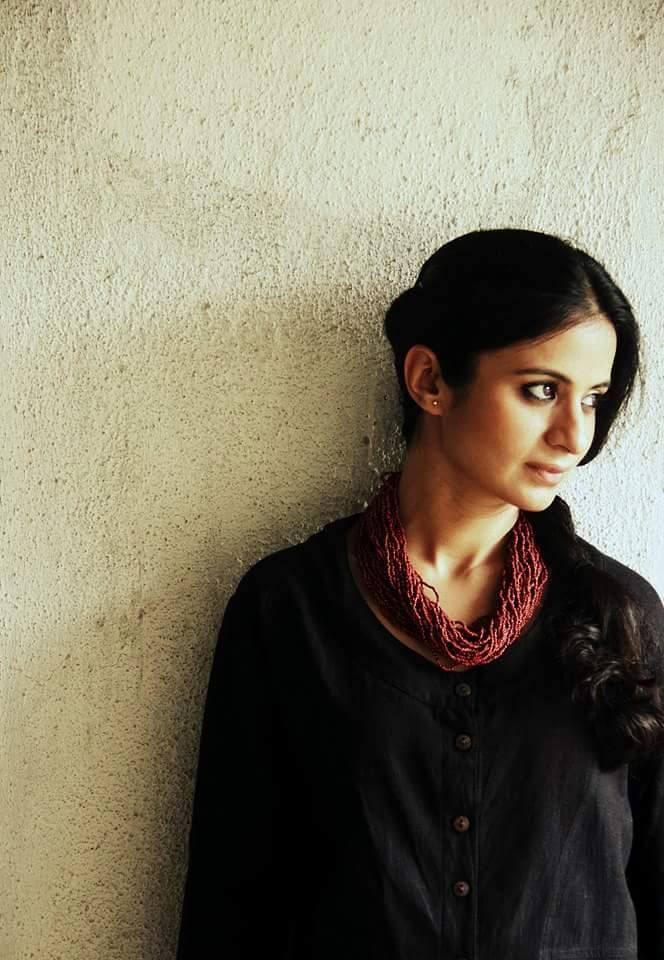
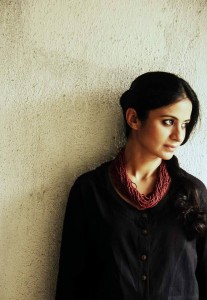
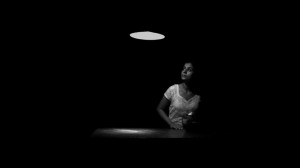
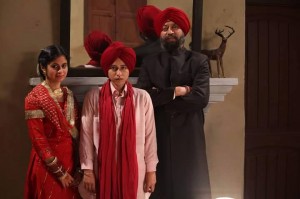
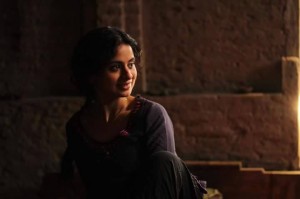

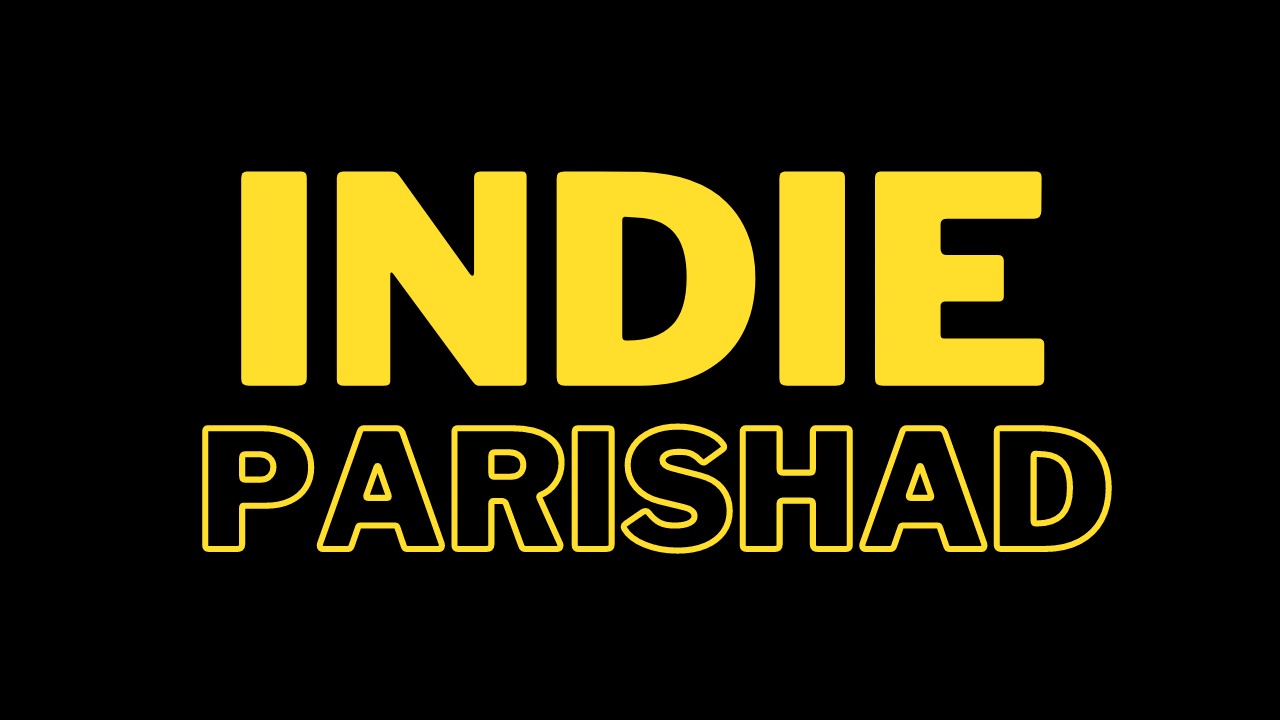
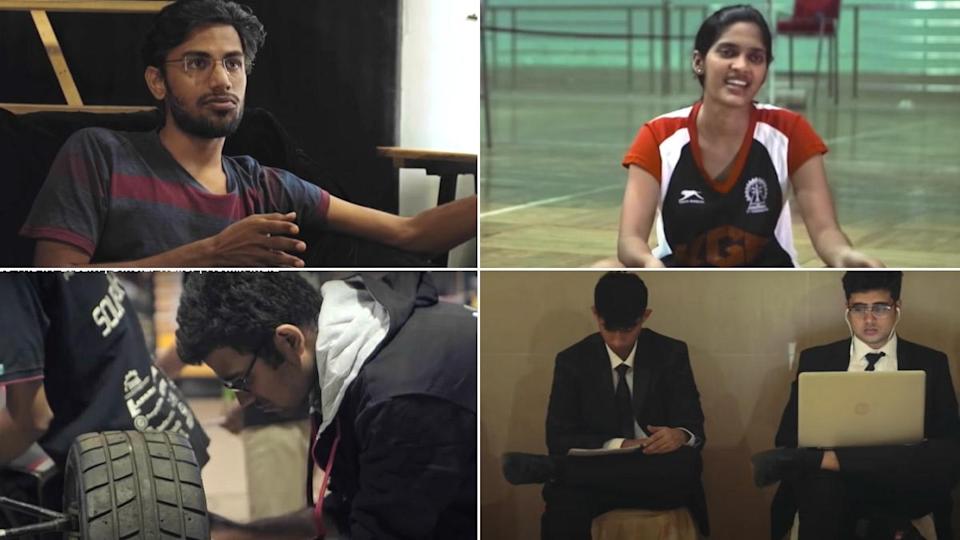
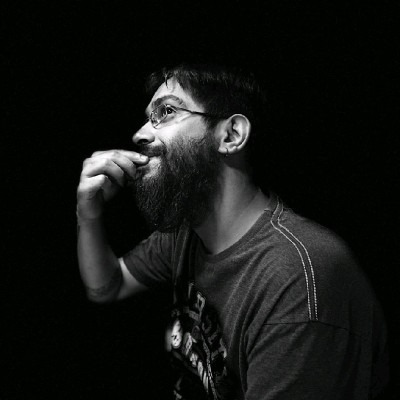

Leave A Comment
You must be logged in to post a comment.